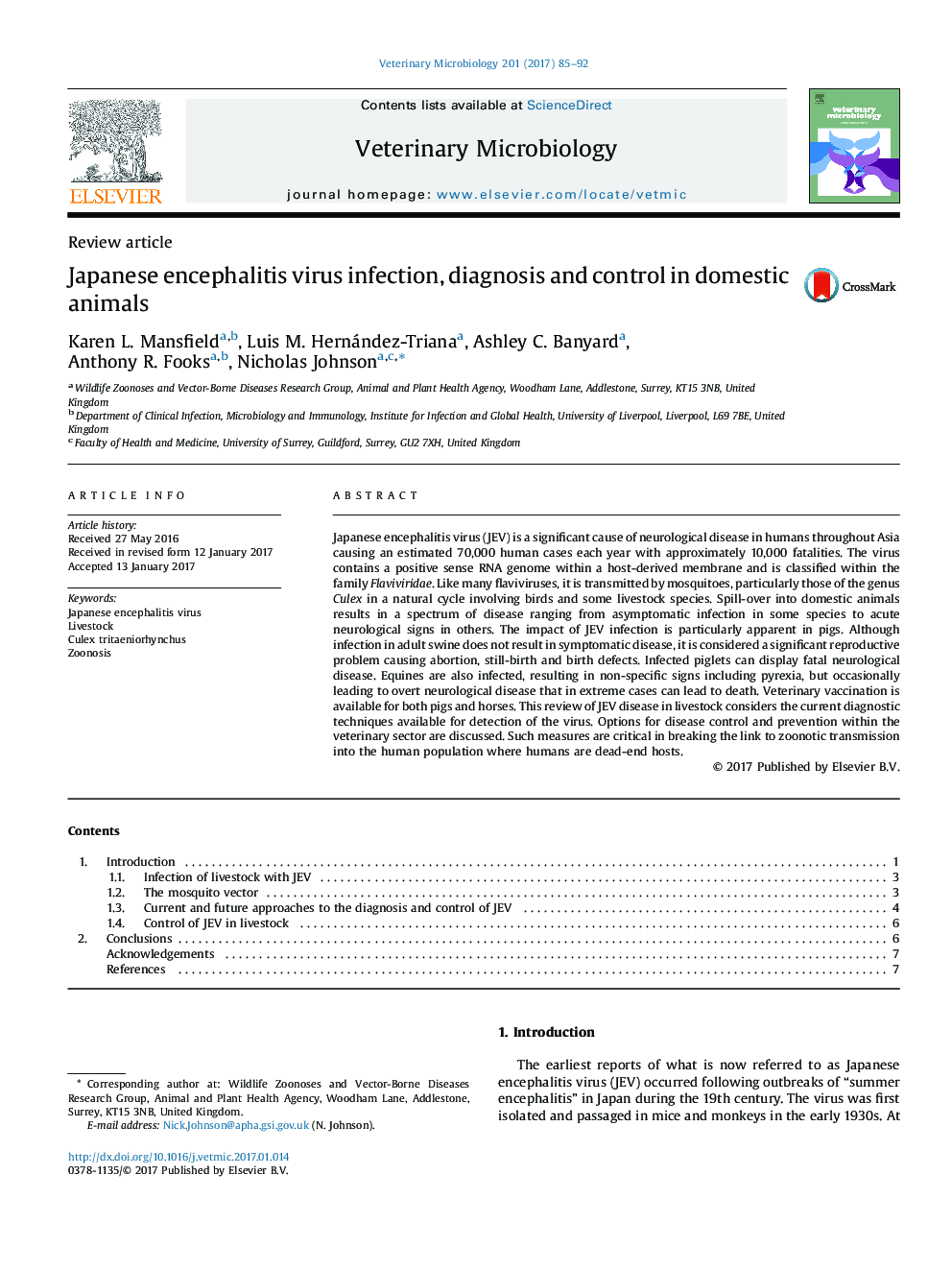| Article ID | Journal | Published Year | Pages | File Type |
|---|---|---|---|---|
| 5545113 | Veterinary Microbiology | 2017 | 8 Pages |
Abstract
Japanese encephalitis virus (JEV) is a significant cause of neurological disease in humans throughout Asia causing an estimated 70,000 human cases each year with approximately 10,000 fatalities. The virus contains a positive sense RNA genome within a host-derived membrane and is classified within the family Flaviviridae. Like many flaviviruses, it is transmitted by mosquitoes, particularly those of the genus Culex in a natural cycle involving birds and some livestock species. Spill-over into domestic animals results in a spectrum of disease ranging from asymptomatic infection in some species to acute neurological signs in others. The impact of JEV infection is particularly apparent in pigs. Although infection in adult swine does not result in symptomatic disease, it is considered a significant reproductive problem causing abortion, still-birth and birth defects. Infected piglets can display fatal neurological disease. Equines are also infected, resulting in non-specific signs including pyrexia, but occasionally leading to overt neurological disease that in extreme cases can lead to death. Veterinary vaccination is available for both pigs and horses. This review of JEV disease in livestock considers the current diagnostic techniques available for detection of the virus. Options for disease control and prevention within the veterinary sector are discussed. Such measures are critical in breaking the link to zoonotic transmission into the human population where humans are dead-end hosts.
Related Topics
Life Sciences
Agricultural and Biological Sciences
Animal Science and Zoology
Authors
Karen L. Mansfield, Luis M. Hernández-Triana, Ashley C. Banyard, Anthony R. Fooks, Nicholas Johnson,
